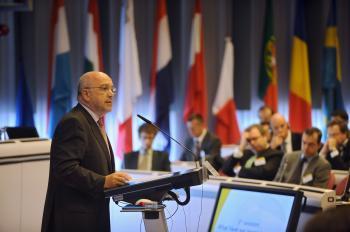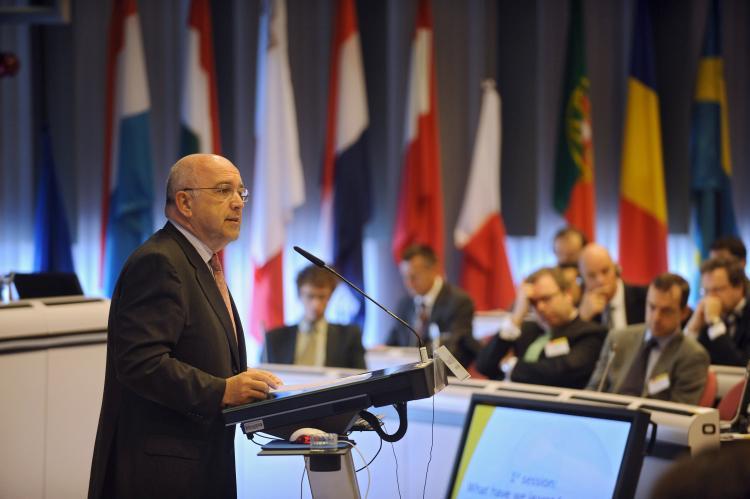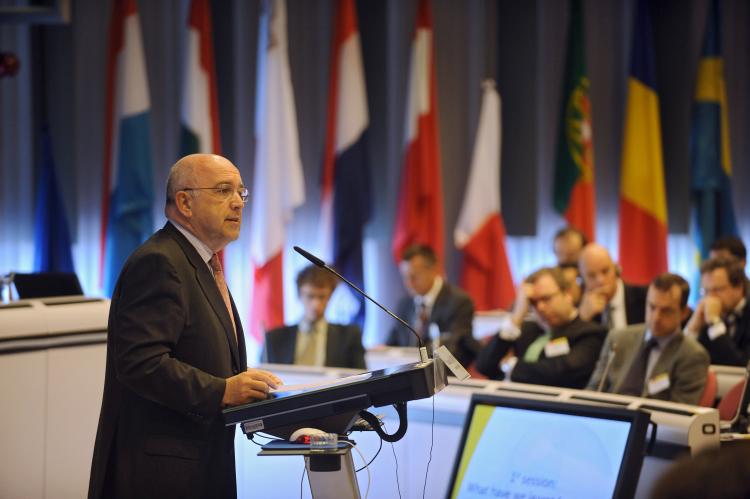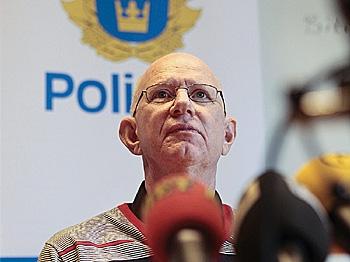GOTHENBURG, Sweden—The European Commission hosted a second conference on industrial competitiveness to discuss options for recovery from the shocks of the global financial crisis.
Although signs of recovery are evident, the recovery is slow and there’s still uncertainty for a double dip.
The European manufacturing industry has declined by 20 percent, and while it has seen a slight recovery, much rides on governmental stimulus packages. Sectors such as automobile, machinery, and electrical equipment are still weak, while pharmaceuticals and food remain stable, according to statistics from the European Commission (EC).
The crisis also reveals weaknesses within the European economy, for instance the declining competiveness in key industries and the overspending of public finances in several European countries. These new issues add to the existing problems of escalating unemployment and unsustainable energy supply, threatening Europe with a “lasting recession and social hardship” unless “structural adjustments” are made, according to the speakers at the conference.
The conference, partly transmitted live by EbS (Europe by Satellite), hosted speakers from EC, as well as international academic experts, business leaders, economists, and journalists.
Joaquín Almunia, commissioner for Competition said “regulatory failures were one of the key causes” of the financial crisis, and the need for government intervention to save banks moved the risks from the private sector to the public sector.
New rules, guidelines, and better monitoring will prevent a future crisis. When the economy normalizes, credit demand will increase. European banks must be able to compete on the merits of their business strategies, and not government support.
“Europe cannot afford to have zombie banks that can stay alive but are too weak to lend to the European economy,” said Almunia.
Alumina also warned that protectionism is a sure way to failure. Europe needs to encourage and create a climate favorable for new ideas, innovation, enterprise, and growth.
Antonio Tajani, EC vice president in charge of Industry and Entrepreneurship said that the European Union requires new approaches to stimulate investment and growth, but above all the issue of public finances must be solved.
According to data from EC, Greece and Italy have debts totaling more than their entire annual GDP. Ireland, Spain, Portugal, and the U.K. also have exorbitant public debts compared to their GDP.
Peter Scherrer, general secretary of European Metal-Workers Federation, said that European industries would undergo inevitable changes. Innovation, research, and development are needed to stay competitive and create new jobs.
Peter Brabeck-Letmathe, former CEO of Nestle, said that European companies are competitive and successful, but are hampered by national infrastructure and politics. He blamed the low European productivity on inadequate mobilization of labor within Europe and the overspending in the private and public sectors.
Although signs of recovery are evident, the recovery is slow and there’s still uncertainty for a double dip.
The European manufacturing industry has declined by 20 percent, and while it has seen a slight recovery, much rides on governmental stimulus packages. Sectors such as automobile, machinery, and electrical equipment are still weak, while pharmaceuticals and food remain stable, according to statistics from the European Commission (EC).
The crisis also reveals weaknesses within the European economy, for instance the declining competiveness in key industries and the overspending of public finances in several European countries. These new issues add to the existing problems of escalating unemployment and unsustainable energy supply, threatening Europe with a “lasting recession and social hardship” unless “structural adjustments” are made, according to the speakers at the conference.
The conference, partly transmitted live by EbS (Europe by Satellite), hosted speakers from EC, as well as international academic experts, business leaders, economists, and journalists.
Joaquín Almunia, commissioner for Competition said “regulatory failures were one of the key causes” of the financial crisis, and the need for government intervention to save banks moved the risks from the private sector to the public sector.
New rules, guidelines, and better monitoring will prevent a future crisis. When the economy normalizes, credit demand will increase. European banks must be able to compete on the merits of their business strategies, and not government support.
“Europe cannot afford to have zombie banks that can stay alive but are too weak to lend to the European economy,” said Almunia.
Alumina also warned that protectionism is a sure way to failure. Europe needs to encourage and create a climate favorable for new ideas, innovation, enterprise, and growth.
Antonio Tajani, EC vice president in charge of Industry and Entrepreneurship said that the European Union requires new approaches to stimulate investment and growth, but above all the issue of public finances must be solved.
According to data from EC, Greece and Italy have debts totaling more than their entire annual GDP. Ireland, Spain, Portugal, and the U.K. also have exorbitant public debts compared to their GDP.
Peter Scherrer, general secretary of European Metal-Workers Federation, said that European industries would undergo inevitable changes. Innovation, research, and development are needed to stay competitive and create new jobs.
Peter Brabeck-Letmathe, former CEO of Nestle, said that European companies are competitive and successful, but are hampered by national infrastructure and politics. He blamed the low European productivity on inadequate mobilization of labor within Europe and the overspending in the private and public sectors.




